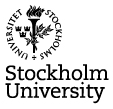
Brian Walker on resilience approaches
In the face of looming global shocks building resilience and for initiating transformation is urgent.
This leads to a focus on feedbacks and feedback loops as points of intervention for either avoiding or engineering regime shifts. In the face of looming global shocks there is increasing urgency both for building resilience and for initiating transformation.
The question is which, and where? It is a crucial question for societies at scales from local, to regional to continental.
About Dr. Walker
Dr Walker is a Research Fellow with CSIRO Sustainable Ecosystems and is the former Program Director and Chair of the Board of the Resilience Alliance, an international research group working on sustainability of social-ecological systems.
A key focus of his work is the significance of resilience (the capacity of a system to absorb disturbance and to undergo change while still retaining essentially the same function, structure, identity, and feedbacks) in the sustainability of ecosystems and social-ecological systems.
Dr Walker co-authored the 2006 book Resilience thinking: Sustaining ecosystems and people in a changing world. He is also a visiting researcher at the Stockholm Resilience Centre.
Time and place
Beijer Hall, the Royal Swedish Academy of Sciences,
Lilla Frescativägen 4, Stockholm
Vacancies | Contact | Environmental policy | Cookies
Stockholm Resilience Centre
Stockholm University, Kräftriket 2B | Phone: +46 8 674 70 70 | info@stockholmresilience.su.se
Organisation number: 202100-3062 | VAT No: SE202100306201


